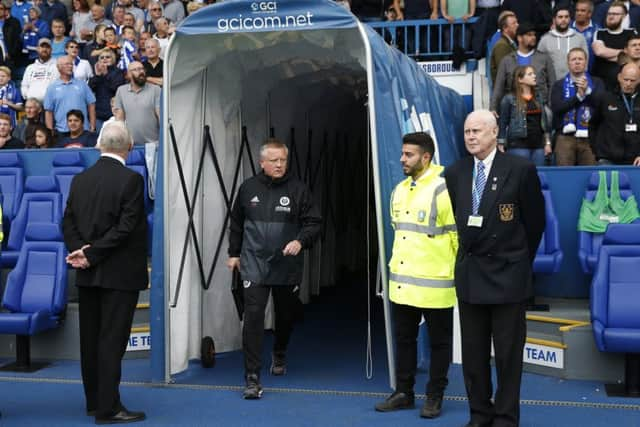It's derby day, so how about this for an idea? - James Shield's Sheffield United Column


Give me a panenka over an aggressive pass rush any day of the week. A blitz is something that happens in wartime. Not on the football field.
But seeing as it’s derby day, and given the respective financial positions of the two protagonists, I’m going to surprise Rob Staton by suggesting football should consider adopting one of the NFL’s most treasured principles; the salary cap.


Advertisement
Advertisement
One of the things which makes tonight’s meeting between Sheffield United and Sheffield Wednesday so intriguing, just like September’s clash at Hillsborough, is the different approaches both teams have adopted in pursuit of success. United, having spent six seasons living hand to mouth in League One, base their recruitment policy on unearthing gems in the lower divisions. Wednesday, by contrast, have completed a series of multi-million pound signings since Dejphon Chansiri’s takeover of the club and pay big bucks to match. No criticism is inferred or implied. United would gladly spend the money themselves if it was available. But neither are my fears the beautiful game is becoming more focused on balance sheets and bottom lines than good coaching, skill and intelligence assuaged by the fact they enter the game nine places higher in the Championship table. Wolverhampton Wanderers are running away with the division because, quite simply, they have access to financial resources no other team in the competition can match.
Quite aside from concerns about the strength of a business model based on television viewing habits, putting fears about the impact of the inevitable crash to one side, the sight of historic community institutions becoming rich mens’ play-things belittles both the traditions and societal importance of our national sport. While we should be rewarding better management, the development of players and tactics, instead clubs find themselves fluttering their eyelids at passing business folk with a few quid to spend. It is desperate, demeaning and completely contrary to what football should be about.
This state of affairs has also contributed to a situation where fairytales, like Wimbledon’s rise up the ladder, have become things of the past. (AFC Bournemouth, the modern day ‘equivalent’ had a Maxim Demin, a Russian petrochemicals magnate, pulling the strings). And that is a dangerous situation. Especially when, given the level of their investments, many of these owners start talking about chipping away at things like promotion, relegation and collective bargaining agreements.
Salary caps, depending upon how they are drawn-up and implemented, still permit clubs to be creative and spend money. But they also maintain interest levels by discouraging hegemony, rewarding strategic planning rather than simply deep pockets, and help protect the integrity of sport. Something football, if it is to remain relevant, desperately needs.